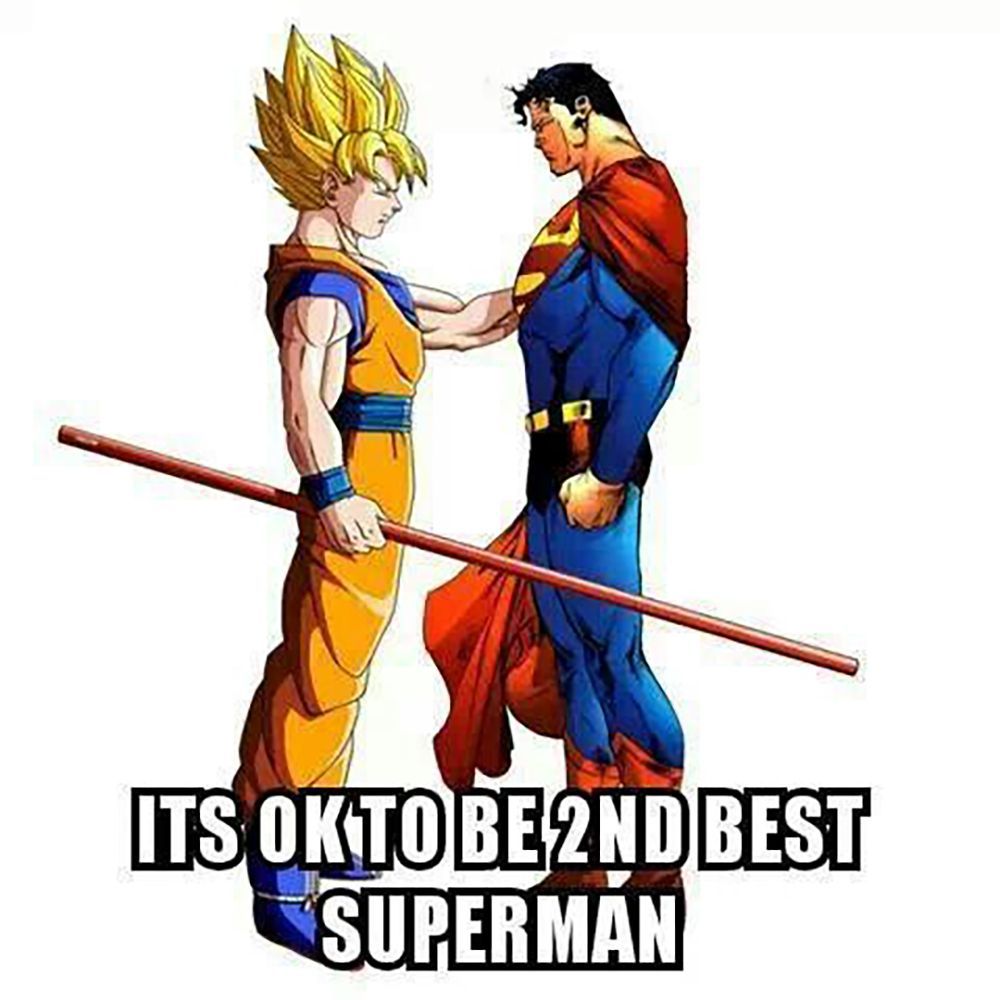Son Goku: Dragon Ball protagonist, trained alien warrior, and, sure, pretty powerful guy. But how powerful, really? Hardcore fans might tell you that there’s nobody out there that could beat Goku in a fight.
But consider this: Tony Tony Chopper is my sweet child and therefore would beat Goku because I said so.
Since the 1980s, fans have indulged in the thrill of arguing over Goku and his strength. As well as being highly influential on other manga and anime, Dragon Ball was one of the earliest Japanese series to gain popularity in the West. Spread first through fan-translated bootlegs and shipped-in manga, it eventually aired on U.S. television in the late 1990s, although it had several false starts before finding success. Through those years, anime found its Western audience, but it was still nowhere near as mainstream as it is now.
One eternal question spans all of pop culture: “Who would win?” That’s why we’re dedicating an entire week to debates that have shaped comics, movies, TV, and games, for better and worse. Prepare yourself for Polygon’s Who Would Win Week.
That’s probably why fans first wanted to make a case for its protagonist over the characters in more popular comic strips and TV shows of the day. One of the absurdities of the argument, of course, is that just because a character is very powerful, that doesn’t mean the media is inherently good. But Goku’s strength is a key focus of Dragon Ball stories. Like so many shōnen protagonists, he is constantly coming up against stronger and stronger foes, and getting stronger himself in turn. Dragon Ball gives strength a straightforward numerical metric in the form of power levels — you may have heard of that time that Goku went over 9000.
The manga and anime’s emphasis on Goku being very, very strong made it a constant source of interest for the community, too. And fans in the ’90s and 2000s latched onto Goku and his power as an emblem of their niche. “Goku vs. Superman,” for example, became a classic matchup. As they’re both powerful beings originally from different planets, it makes sense as a comparison. But Superman, one of the most popular and well-known comics characters of all time, needed no defense. Goku, on the other hand, was part of a new wave. And nothing inspires passion more than a fandom that perceives itself as the outsider.

In 2002, Wizard magazine published a front-page hypothetical fight between Goku and Superman titled “East vs. West.” (Goku won.) A popular webcomic picked up the baton in 2003 and expanded the rivalry. As Dragon Ball increased in popularity and online fandom grew in influence, fans started targeting any creation that favored Superman. A 2009 video that depicted the American hero winning gained millions of views, but also a 75% dislike ratio and a wave of angry comments.
Since the 2010s, this tendency to evangelize Goku has turned around as a joking stereotype, propelling its popularity as a meme. Dragon Ball fans are no longer the underdogs. With anime and manga having become basically mainstream, and Dragon Ball being one of the most well-known and influential among them, the script has flipped. People, particularly fans of other anime series, began to poke fun at the perceived tendency of Goku stans to jump in on their discussions to talk about Goku’s strength relative to whatever other protagonist was in conversation, regardless of any other subjective considerations of quality or enjoyment.
It helps that the joke is still underpinned by real behavior. To this day, it’s easy to find fans responding to the meme with overly serious explanations of just how powerful Goku is, which only intensifies it in turn. After all, nothing sparks mockery online more than earnestness.
On the other hand, as Japanese media has expanded in popularity, there are those who try to exclude others based on their arbitrary feeling of superiority. According to the gatekeepers, people aren’t “true fans” if they haven’t seen “the classics,” or prefer genres other than shōnen. With shōnen so often focusing on the strength of the protagonist, there’s a notable overlap between these gatekeepers and those who focus on Goku’s power above all else.
But the inherent humor of baiting those who constantly proclaim Goku’s strength is an easy counter to that kind of gatekeeping. All people had to do was confidently assert that actually, anybody could take on Goku. It collided with another meme, the “Your Fave” format, which allowed people to send in requests to see characters in any number of bizarre situations; “Your Fave Could Beat Goku” accounts sprung up on both Twitter and Tumblr. They allowed people to make the assertion that anybody and everybody could reign triumphant over him, no questions asked.
Characters who are popular with women, like Sailor Moon, or those from mainstream modern anime, like My Hero Academia and Jujutsu Kaisen, prove to be the most popular posts — and the most controversial with certain Dragon Ball fans. But people showing up to disagree or to demand explanations for exactly how they would pull it off only make the joke funnier by falling for the bait.
We’re living in a post-Goku era. Anime is widely accessible from both dedicated online platforms like Crunchyroll and major general streaming companies like Netflix. It no longer needs defending as a niche hobby, and so it no longer needs an all-powerful Goku. And the broader availability of series and films that aren’t shōnen means the focus on strength has also fallen away. Conversely, the minority of fans who continue to take the argument too seriously tend to fall alongside those gatekeeping anime’s increased popularity and variety.
But others have been able to appropriate the meme because of the intrinsic comedy of the overly earnest internet comment that conflates a protagonist’s strength with story quality, turning it into a weapon against gatekeeping in general. It’s a brave new world where anyone can beat the Saiyan, thanks to the power of one’s conviction. That’s the most anime thing of all.

